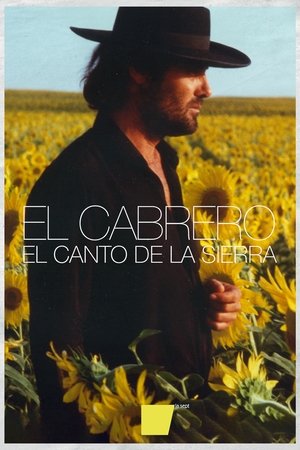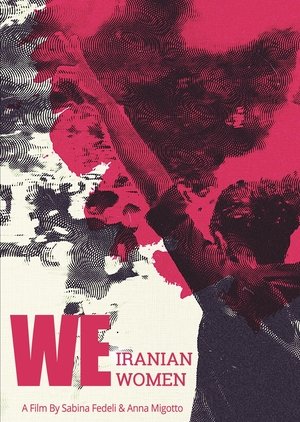
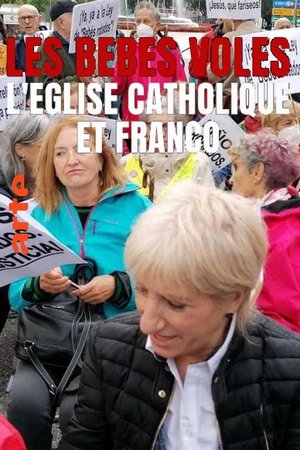
Kinderraub - Ein dunkles Kapitel der katholischen Kirche(2023)
Movie: Kinderraub - Ein dunkles Kapitel der katholischen Kirche
Top 1 Billed Cast
Narrator (voice)

Kinderraub - Ein dunkles Kapitel der katholischen Kirche
HomePage
Overview
Release Date
2023-02-28
Average
0
Rating:
0.0 startsTagline
Genres
Languages:
DeutschKeywords
Similar Movies
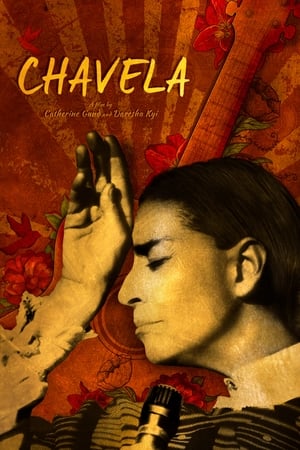 6.9
6.9Chavela(es)
Inspired by an exclusive interview and performance footage of Chavela Vargas shot in 1991 and guided by her unique voice, the film weaves an arresting portrait of a woman who dared to dress, speak, sing, and dream her unique life into being.
 0.0
0.0In Battle Against the Enemy of the World: German Volunteers in Spain(de)
Nazi propaganda film about the Condor Legion, a unit of German "volunteers" who fought in the Spanish Civil War on the side of eventual dictator Francisco Franco against the elected government of Spain.
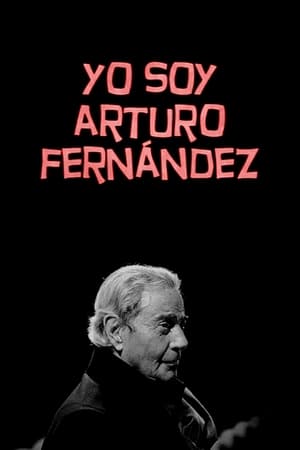 6.0
6.0Yo soy Arturo Fernández(es)
A gentle portrait of the mythical Spanish actor Arturo Fernández (1929-2019) in the hour of his passing, in his own words, through his latest interviews, not previously broadcast, and the words of those who knew him thorough decades of charming and good performance on stage, his true home, as well as in cinema and television.
 7.2
7.2Enron: The Smartest Guys in the Room(en)
A documentary about the Enron corporation, its faulty and corrupt business practices, and how they led to its fall.
 0.0
0.0Chop, Chop, Chop(en)
Care work, awareness-raising, waste reduction. Thieboudienne, chaufa, paella. What do these recipes have in common? Who cooks them? Where?
 7.6
7.6Caudillo(en)
Caudillo is a documentary film by Spanish film director Basilio Martín Patino. It follows the military and political career of Francisco Franco and the most important moments of the Spanish Civil War. It uses footage from both sides of the war, music from the period and voice-over testimonies of various people.
Seeing Spain(en)
This Traveltalk series short looks at four of Spain's most famous cities, Granada, Seville, Toledo, and Madrid, with an emphasis on the Moors and their influence on the country.
 7.1
7.1Untold: Sign Stealer(en)
In this sports documentary, Connor Stalions addresses the allegations surrounding the Michigan football sign-stealing scandal for the first time.
 6.0
6.0Clawing! A Journey Through the Spanish Horror(es)
In the late sixties, Spanish cinema began to produce a huge amount of horror genre films: international markets were opened, the production was continuous, a small star-system was created, as well as a solid group of specialized directors. Although foreign trends were imitated, Spanish horror offered a particular approach to sex, blood and violence. It was an extremely unusual artistic movement in Franco's Spain.
So I Sleepwalk in Broad Daylight(de)
In Garcia Lorca's mother tongue, death is a woman: "la muerte". Daniel slips into the role of "death as a female" and speaks before a video camera on the life and death of the famous Spanish poet. Then the story begins.
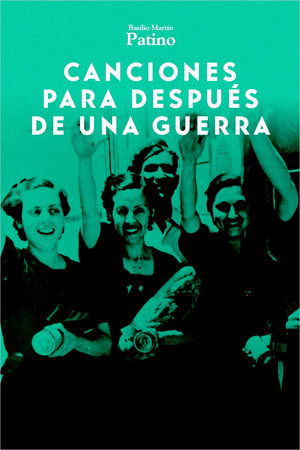 6.5
6.5Songs for After a War(es)
A particular reading of the hard years of famine, repression and censorship after the massacre of the Spanish Civil War (1936-39), through popular culture: songs, newspapers and magazines, movies and newsreels.
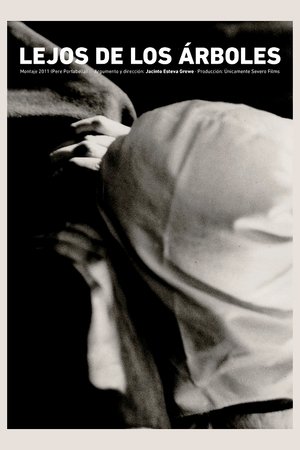 5.8
5.8Far from the Trees(es)
An unprejudiced portrait of Spanish folklore and a crude analysis in black and white of its intimate relationship with atavism and superstition, with violence and pain, with blood and death; a story of terror, a journey to the most sinister and ancestral Spain; the one that lived far from the most visited tourist destinations, from the economic miracle and unstoppable progress, relentlessly promoted by the Franco regime during the sixties.
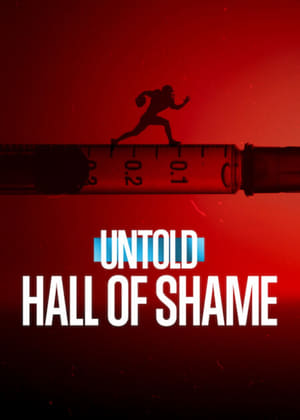 6.7
6.7Untold: Hall of Shame(en)
Examine one of sports' biggest steroid scandals via interviews with the head of BALCO lab, athletes suspected of using performance-enhancing drugs and more.
 7.0
7.0Land Without Bread(es)
An exploration —manipulated and staged— of life in Las Hurdes, in the province of Cáceres, in Extremadura, Spain, as it was in 1932. Insalubrity, misery and lack of opportunities provoke the emigration of young people and the solitude of those who remain in the desolation of one of the poorest and least developed Spanish regions at that time.
 5.1
5.1¡Al fútbol!(es)
Any given Sunday of 1974 in Spain, soccer games in several stadiums, the sarcastic voice of commentators, the inevitable presence of advertising. Goal! The victors and the defeated.
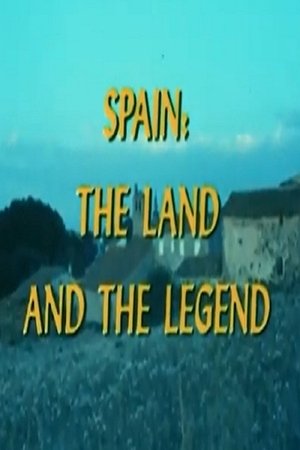 0.0
0.0Spain: The Land and the Legend(en)
This film conveys a sense of the forces that have shaped Spain over the centuries, including Roman, Islamic, and Catholic influences, and gives James Michener's analysis of the history, art, folklore, and architecture of the country.
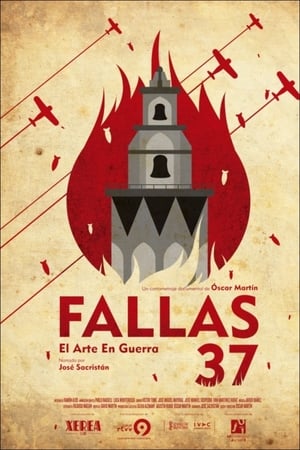 6.0
6.0Fallas 37: el arte en guerra(es)
In November 1936, a few months since the beginning of the Spanish Civil War, the government of the Second Republic moves to Valencia. In this situation, several Valencian artists and intellectuals decide to build four fallas — satirical plasterboard sculptures created to be burnt — to mock fascism.
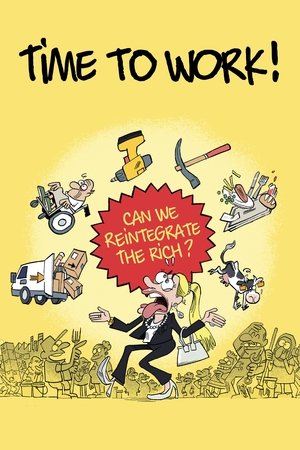 7.2
7.2Time to Work!(fr)
Following a heated debate on a French news television channel, Left wing MP François Ruffin defies a TV columnist and attorney, Sarah Saldmann, to work and live one month on the minimum-wage. This humanistic and humoristic documentary highlights the daily struggles and joys of the working-class compared to the fantasy the bourgeoisie has built up in the media. It also raises a thorny question : can the rich be socially reintegrated ?
